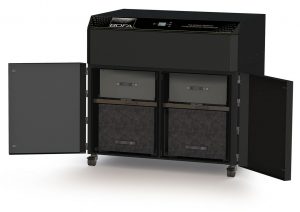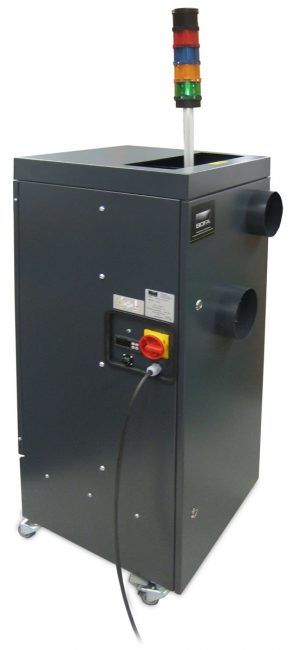Portable Fume Extraction – Helping Drive Efficiency in Electronics
With spiraling energy costs, technology that can help manufacturers become as efficient as possible looks set to become increasingly important.
At BOFA, we continuously look at ways to improve the efficiency of our fume and dust extraction systems – that doesn’t just mean looking at power consumption but more broadly at the overall cost of ownership associated with filtration performance.
One area we have seen an uptake in demand is in the adoption of portable extraction technology in sectors such as lasering and electronics…and more recently in additive manufacturing. These are industries that rely on an agile way of working and an ability to change processes or move equipment to optimize productivity.
These benefits need to be factored in when decisions are taken about whether to specify portable extraction over a fixed system.
As David Thompson, Business Development Manager at BOFA specializing in applications for the electronics sector explains: “Automated soldering processes have made a significant and positive impact on productivity in the global electronics industry, but to optimize these gains, businesses should also consider fume extraction solutions that offer flexibility as well as contributing to workplace environmental health management.
“Portable extraction is becoming more commonplace as companies recognize the flexibility advantages it can bring to agile working practices when compared with fixed centralized exhaust systems.”

BOFA technology designed for automated soldering processes includes the V 2000 iQ, a high airflow fume extraction system for reflow ovens and wave solder machines.
Large filter capacity and carbon filters ensure long filter life and optimal extraction even when lead-free solder is used. It also offers adjustable and regulated airflow control to ensure consistent process temperatures and to help maintain the accuracy of the thermal profile.

At the same time, BOFA’s Temperature Control Unit (TCU) is helping maintain optimal PCB print area productivity by controlling temperatures within a programmable 19-30oC parameter. It is accurate to within 1oC thanks to smart airflow management and integrated sensor-driven heaters and refrigerated cooling.
The TCU can be used with a wide range of solder paste printers and in conjunction with BOFA’s extraction technologies developed for reflow ovens, wave solder machines, and conformal coating applications.
Tight temperature control helps optimize productivity by reducing the potential for defects, thereby avoiding unplanned downtime and additional energy costs associated with rework.
Enabling optimal extraction effectiveness through the timely exchange of filters is also an important factor in maintaining efficiency and productivity. BOFA’s onboard Intelligent Operating System (iQ) provides independent filter status monitoring to reduce the risk of downtime and lower the overall cost of system ownership.
Portable technology can also address concerns around the cost of replacing heated or cooled air continuously expelled externally by a centralized system, which can increase energy consumption.

To help maintain optimal performance, BOFA engineers can offer guidance on maintenance and operation. In addition, the company’s online Academy –https://bofainternational.com/us/support/training-bofa-academy provides access to modular multimedia information to increase extraction system knowledge.


